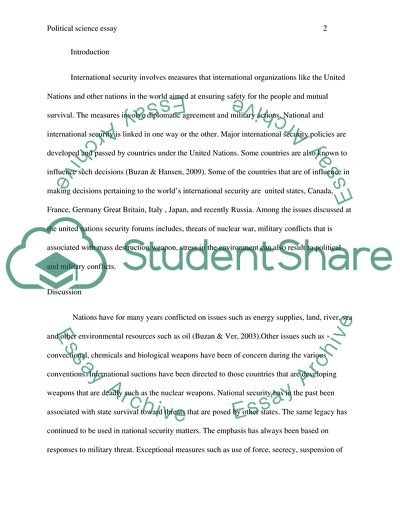Cite this document
(Development of Military Power for International Security Essay Example | Topics and Well Written Essays - 2250 words, n.d.)
Development of Military Power for International Security Essay Example | Topics and Well Written Essays - 2250 words. https://studentshare.org/social-science/1846931-to-what-extent-is-traditional-military-power-still-central-to-todays-international-security
Development of Military Power for International Security Essay Example | Topics and Well Written Essays - 2250 words. https://studentshare.org/social-science/1846931-to-what-extent-is-traditional-military-power-still-central-to-todays-international-security
(Development of Military Power for International Security Essay Example | Topics and Well Written Essays - 2250 Words)
Development of Military Power for International Security Essay Example | Topics and Well Written Essays - 2250 Words. https://studentshare.org/social-science/1846931-to-what-extent-is-traditional-military-power-still-central-to-todays-international-security.
Development of Military Power for International Security Essay Example | Topics and Well Written Essays - 2250 Words. https://studentshare.org/social-science/1846931-to-what-extent-is-traditional-military-power-still-central-to-todays-international-security.
“Development of Military Power for International Security Essay Example | Topics and Well Written Essays - 2250 Words”. https://studentshare.org/social-science/1846931-to-what-extent-is-traditional-military-power-still-central-to-todays-international-security.


